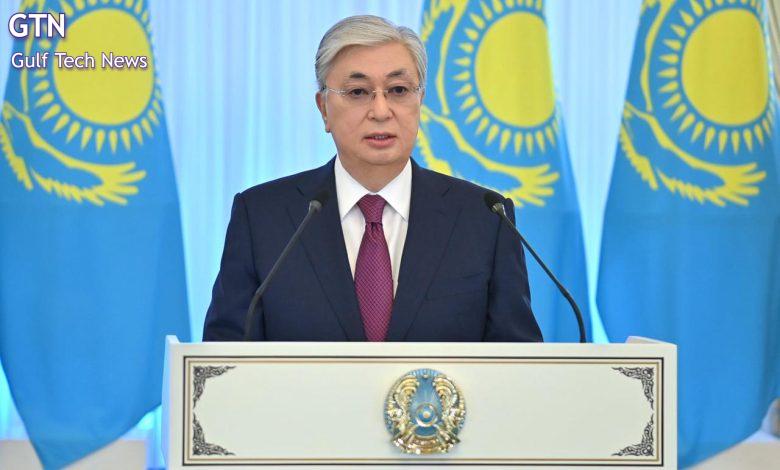A Reform Agenda by the Kazakh President Heralds a New Era of Social Justice and Economic Growth

By: Dr. Abdel Rahim Ibrahim Abdel Wahid
In a pivotal moment in Kazakhstan’s socio-economic journey, President Kassym-Jomart Tokayev reaffirmed his commitment to advancing and implementing a bold and comprehensive national framework under the banner: “A Just Citizen – Decent Work – Fair Wages.” This vision builds on the foundations he first introduced during the third session of the National Kurultai on May 24, 2024, where he outlined a politically-rooted roadmap grounded in justice, equity, and national unity.
The announcement marked a decisive shift toward a more inclusive and equitable Kazakhstan—one where fairness, opportunity, and dignity are afforded to all.
With support from World Bank analysis, this initiative is recognized as a cornerstone for labor market reforms in Kazakhstan, signaling the government’s commitment to building a socially responsible state that empowers every citizen, protects every worker, and rewards every contribution fairly.
The phrase “Fair Citizen – Fair Labour – Fair Wages” reflects a policy framework prioritizing a just and equitable social and economic system, focusing on the rights and well-being of citizens, fair employment practices, and adequate compensation for work, according to a World Bank analysis of Kazakhstan’s labor market reform plans.
This framework aims to improve the lives of citizens by ensuring that they have access to decent jobs, earn fair wages, and have the opportunity to contribute meaningfully to society.
This vision was launched by President of Kazakhstan Kassym-Jomart Tokayev’s At the third session of Kazakhstan’s National Kurultai May 24, 2024 who setting out a multi-faceted agenda for social justice and economic equity under the banner “Fair Citizen – Fair Labour – Fair Wages
Three Development Pillars:
1. Just Citizen: Strengthening Rights, Access, and Civic Responsibility
The “Just Citizen” pillar aims to enhance equality before the law and improve public access to education, healthcare, justice, and social services—especially in rural and underserved communities. The government has pledged to continue expanding both digital and in-person services, increase institutional transparency, and promote greater citizen participation in governance.
President Tokayev stated: “Just citizenship is not merely a legal status; it is a moral commitment. It means equal access to quality education, healthcare, social protection, and justice, and a shared responsibility to uphold the rule of law and contribute to national development.”
2. Decent Work: Safeguarding Dignity and Modernizing Employment Standards
Under the theme of “Decent Work,” Kazakhstan is actively reforming its labor legislation to align with International Labour Organization (ILO) standards, ensuring that every worker enjoys safe, dignified, and fair working conditions.
President Tokayev affirmed: “We are constantly working to harmonize our labor laws with international standards to guarantee security, dignity, and fairness at work.”
Key measures include:
- Legislative updates to combat workplace discrimination and improve safety standards,
- A new national labor monitoring system to detect violations and strengthen compliance,
- A significant increase in labor inspections, with the number of inspectors set to triple from 300 to 900 by 2026.
The President’s vision targets vulnerable sectors of the workforce, including youth unemployment, informal employment, gender inequality in the workplace, and encourages employers to adopt socially responsible hiring practices. This contributes to building a modern, skilled, and well-protected labor force.
3. Fair Wages: Tackling Inequality and Promoting Economic Security
To directly address income inequality, the “Fair Wages” strategy introduces several key initiatives:
- A 15% increase in the minimum wage effective July 1, 2024, benefiting over one million workers—especially in education, healthcare, and agriculture sectors,
- A new wage indexation mechanism to ensure salaries keep pace with inflation and national economic performance,
- Wage transparency legislation aimed at increasing accountability and narrowing the wage gap.
President Tokayev highlighted the urgency of addressing wage arrears, which currently amount to approximately 3.7 billion tenge nationwide.
“Wage arrears undermine family well-being and social trust. We will eliminate this problem through strict enforcement and systemic reform,” he asserted.
The newly announced agenda is structured around three interconnected pillars:
1. Fair Citizen
This pillar seeks to guarantee equal rights and access to education, healthcare, social services, and justice—particularly for rural and vulnerable populations. It emphasizes civic responsibility and moral integrity, with new initiatives to:
- Expand healthcare and education access in underserved areas
- Improve digital and in-person government service delivery
- Promote civic engagement and rule of law
2. Fair Labour
Kazakhstan is reforming its labor laws to meet International Labour Organization (ILO) standards. Key steps include:
- Strengthening legal protections for all workers
- Expanding the labor inspectorate from 300 to 900 inspectors by 2026
- Implementing a national labor monitoring system
- Supporting youth employment, gender equality, and occupational safety
3. Fair Wages
To address income inequality and improve worker welfare, the government will:
- Raise the minimum wage by 15% starting July 1, 2024, benefiting over one million workers
- Introduce a wage indexation mechanism tied to inflation and economic growth
- Enforce legislation to resolve 3.7 billion tenge in wage arrears
- Promote transparency and close the income gap between the highest and lowest earners
Digital Tools and Anti-Corruption Measures
The agenda includes a major digitalization push to ensure transparent public service access and labor protections. Over 75% of job seekers now use Kazakhstan’s national e-employment platform.
President Tokayev also reaffirmed his government’s zero-tolerance policy on corruption, calling it “a fundamental threat to public trust and national progress.”
Key policy milestones include:
- Labour Law Reform finalized by mid-2025
- Minimum Wage Increase effective from July 1, 2024
- Workforce development funding of 50 billion tenge annually
- Full expansion of the inspectorate and labor digital systems by 2026
The President stressed that this agenda is not only an economic imperative but a moral and national one.
“Together, we are building a Kazakhstan where every citizen is respected, every worker protected, and every contribution recognized,” he concluded. “This is our shared responsibility and our collective future.”
The reform initiative has garnered praise from domestic institutions and international partners, including the World Bank, as a model for labor market modernization in Central Asia.





